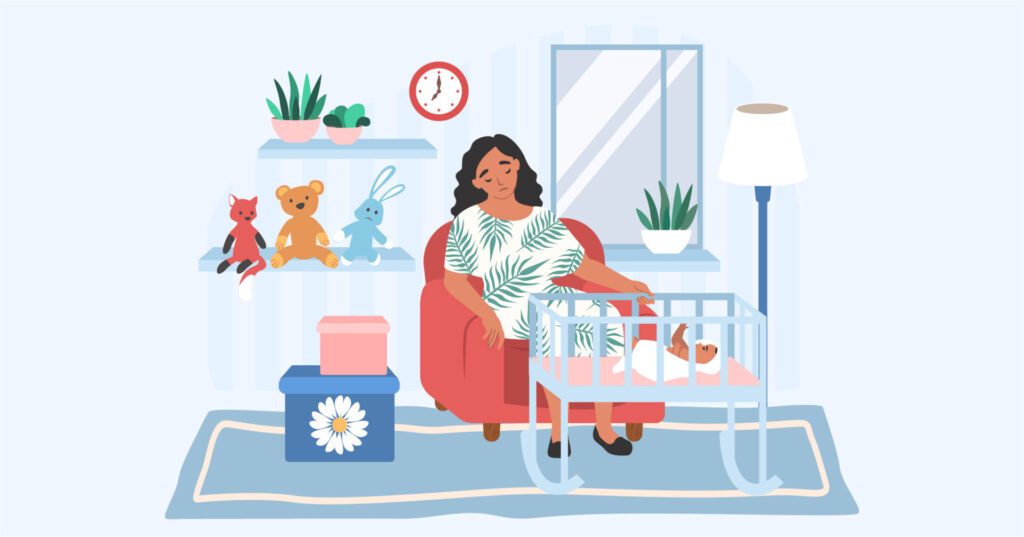What is Postpartum Depression?
The period of pregnancy and the period after birth of the child makes a woman vulnerable. Mothers experience extreme biological, emotional, social and chemical changes. This complex mix of physical, emotional and behavioural changes in some women after giving birth is postpartum depression (PDD).
According to DSM-5, postpartum depression is a form of major depression which begins within 4 weeks of the delivery. It affects 50 to 75% of mothers and further has a long lasting effect on 15% of mothers.
Symptoms of postpartum depression
Women with postpartum depression suffer from combinations of the below symptoms:
- Prolonged periods of sadness
- Excessive crying
- Lack of pleasure or interest in things enjoyed earlier
- No or diminishing interest in the baby
- Self harming thoughts
- Thoughts of harming the baby
- Fatigue
- Irritability and crankiness
- Insomnia or hypersomnia
- Unnecessary guilt
- Trouble concentrating
- Reduced decision making
The intensity of each symptom varies from mother to mother. These symptoms often lead the mother to feel guilty, ashamed and worthless.
The prominent changes are often ignored by new mothers which can be harmful to the mother and the child. Mothers must seek immediate professional help in cases she-
- Feels anxious, fearful, panic often
- Experiences symptoms for more than 2 weeks
- Is unable to function normally
- Is unable to cope with daily tasks

As a new mother, you deserve support and a place to vent your emotions out
Release your emotions in a non-judgemental space
What causes postpartum depression?
The chemical changes in the woman’s body are rapid, production levels of estrogen and progesterone are increased by times during pregnancy and they drop down to normal levels within 3 days post pregnancy. This sudden change in hormone levels along with the psychological and social changes, makes women highly prone to depression.
Levels of thyroid hormones also drop rapidly post pregnancy which may cause symptoms of depression. In that case, a doctor can prescribe thyroid medication to balance it.
Many mothers have reported to feel-
- Unattractive
- Doubtful of their capability to be a mother
- Tired from lack of sleep
- Exhausted after labour and delivery
- Discomfort due to lifestyle change
- Rapidly changed self identity and body image
These thoughts and feelings may push one over the edge towards depression.
Having a history of depression, premenstrual dysphoric disorder (PMDD) or a family history of mood disorders increases a woman’s chances of suffering from postpartum depression.
Other general causes include
- Marital conflicts
- Unwanted pregnancy
- Number of children:The more children one has the higher the chances of depression in the later pregnancies
- Limited support
- Young age the time of pregnancy
- Going through the pregnancy alone
How can postpartum depression be prevented?
If a woman has a history of depression or a family history, it may be beneficial to mention it to your doctor so they can monitor you for onset of any symptoms. Meanwhile it is suggested for women to maintain a healthy diet, resist isolation and focus on themselves as well as the baby during pregnancy.
Even after pregnancy, the doctor can monitor your mood changes and adjustment levels. In case of an oncoming depression, an early treatment can help prevent chronic issues. Women with a history of previous postpartum depression must get themselves checked to avoid further problems.
How can postpartum depression be treated?
Postpartum depression is treatable, it requires a combination of techniques for it.
- Therapy: Just like other types of depressions, postpartum also needs psychotherapy from a clinical psychologist/psychotherapist. Therapy is considered enough for those with mild depression. But for those with moderate or severe depression, therapy has to be combined with medication.
- Medication: Antidepressants are prescribed to women going through moderate or severe depression. For extremely severe cases an IV of brexanolone is administered or esketamine is administered through the nose. Although, brexanolone and esketamine can be harmful for the baby and mother during pregnancy and breastfeeding.
- Lifestyle Changes: The woman is advised and assisted to accept the physical, social, emotional and personal changes that come with motherhood. Taking care of a newborn by oneself is challenging, the mother is advised to ask for and accept help from her spouse and family members.
- Electroconvulsive Therapy (ECT): This being the last option is also counted as a treatment for the types of depressions. It is harmful for a pregnant woman but is considered in extremely severe cases.
Read more :
Postpartum Depression and Its Long Term Effects on Children
Postpartum Depression: Symptoms, Causes, Risks and Types
How to Deal with Guilt? Here are The 10 Useful Tips You Should Know
Grief : An Overwhelming Emotion
Teen Depression: Symptoms of Depression in Teens







